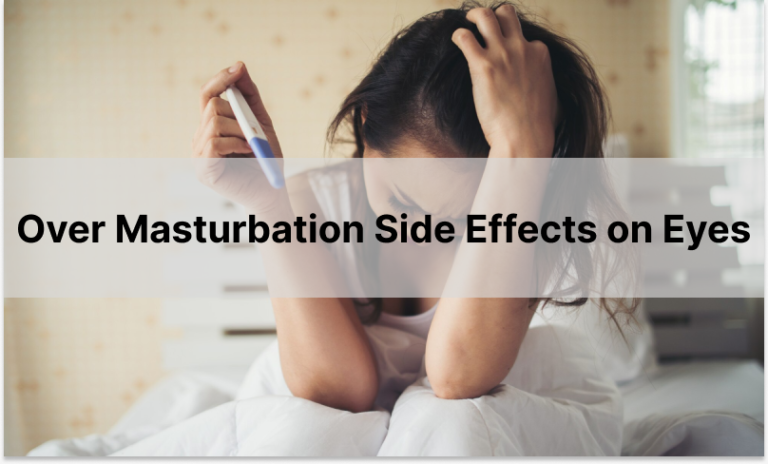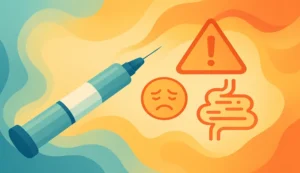Have you ever paused to wonder if what we do in our private moments could ripple through our health in unexpected ways? Today, we’re delving into a topic often whispered about but rarely spoken out loud – the impact of over masturbation on our eyes. It’s a curious inquiry, isn’t it?
“Over masturbation side effects on eyes” – this phrase might sound like a snippet from an old wives’ tale, but is there more to it? In a world where personal habits and health are increasingly interlinked, it’s crucial to separate fact from fiction. Let’s embark on this journey of understanding, breaking down myths, and uncovering truths about a subject that’s as intriguing as it is rarely discussed.
Understanding Masturbation: A Health Perspective
Masturbation, a topic often shrouded in secrecy and misconceptions, is in fact a natural and common practice across various demographics. At its core, masturbation refers to the self-stimulation of the genitals for sexual pleasure. It’s a behavior observed in both men and women, transcending age, culture, and marital status.
The prevalence of masturbation is a testament to its role as a fundamental aspect of human sexuality. Studies suggest that a significant percentage of adults engage in this practice, though the frequency and attitudes towards it can vary widely across different cultures and age groups.
Addressing the “causes of masturbation” requires a shift from the notion of ’causes’ to ‘reasons.’ Masturbation isn’t a consequence of an underlying problem; rather, it’s a normal expression of one’s sexuality. It can be driven by various factors, including natural libido, exploration of one’s body, seeking relief from sexual tension, or simply as a means of experiencing pleasure. It’s a personal choice and a normal part of sexual development.
However, surrounded by myths, masturbation has been a subject of unwarranted concerns. One such misconception is encapsulated in the phrase “is beating your meat bad.” This colloquial term, often used to describe male masturbation, is laden with negative connotations.
Contrary to these implications, masturbation is not inherently ‘bad.’ In fact, health professionals recognize it as a safe way to explore one’s body, understand personal sexual preferences, and release sexual tension. It’s a natural part of human behavior that can contribute to physical and mental well-being.
It’s crucial to approach masturbation from a health perspective, recognizing it as a normal, healthy sexual activity. Dispelling myths and understanding its role in human behavior not only promotes a healthier attitude towards sex but also aids in eliminating unnecessary guilt or anxiety associated with this natural act. By embracing an open and informed view, we can appreciate masturbation as a part of normal sexual health and wellness.
Debunking Myths: Masturbation and Eye Health
In the realm of sexual health, myths and misconceptions often overshadow facts, leading to unwarranted concerns.
One such prevalent myth is the supposed link between masturbation and eye health, specifically the belief in “over masturbation side effects on eyes.” Let’s unravel this myth with scientific evidence and expert opinions.
- The Myth of Visual Impairment:
- The claim that excessive masturbation can lead to vision problems or blindness lacks scientific backing. No credible research links masturbation, regardless of frequency, to deteriorating eye health.
- Ophthalmologists and sexual health experts unanimously agree that there is no physiological connection between masturbation and the health of the eyes.
- Understanding Eye Health:
- Eye health is influenced by factors like genetics, nutrition, age, and environmental elements. Activities like excessive screen time or exposure to harmful UV rays are more likely to impact vision.
- Regular eye check-ups and a balanced diet rich in vitamins A and E are recommended for maintaining good eye health.
- Addressing Memory Loss Concerns:
- Another related myth is the question, “does jerking off cause memory loss?” This claim also falls flat in the face of scientific scrutiny.
- Studies in neurology and psychology have found no evidence to suggest that masturbation affects memory or cognitive functions. In fact, sexual arousal and orgasm can lead to the release of neurotransmitters like dopamine and oxytocin, which play roles in mood regulation and brain function.
- The Role of Misinformation:
- These myths often stem from historical misconceptions and cultural taboos surrounding masturbation.
- Educating oneself with factual sexual health information is crucial to dispelling these myths.
In conclusion, the belief that masturbation, whether termed as “over masturbation” or “jerking off,” has detrimental effects on eye health or memory is unfounded. It’s essential to approach these topics with a critical mind and rely on scientific evidence rather than myths.
Understanding the true impact of masturbation on health not only alleviates baseless fears but also promotes a healthier, more informed perspective on sexual well-being.
Physical Effects of Masturbation: What Does Science Say?
Masturbation, a subject often enveloped in myths, has prompted many to question its physical effects. Scientific research offers insights, particularly addressing concerns like “does ejaculating make you weaker” and “can masturbation cause weakness.”
Contrary to popular belief, ejaculation, whether through masturbation or sexual intercourse, does not lead to significant physical weakness or depletion of bodily resources. Studies indicate that the act of ejaculation has minimal impact on physical strength or health.
The question of whether masturbation can lead to weakness is also met with reassurance from the scientific community. Normal masturbation practices are not linked to any reduction in physical strength or vitality.
In fact, the release of endorphins during orgasm can lead to a sense of relaxation and well-being. This natural process is a part of human sexuality and does not diminish one’s physical capabilities.
Concerns about heart health, encapsulated in the query “can masturbation cause heart problems,” also merit examination. Research shows no direct link between regular masturbation and heart disease.
Masturbation, being a form of physical exertion, does increase heart rate temporarily, but this is similar to any moderate physical activity. It poses no risk to heart health in individuals with normal cardiovascular function.
Another common worry is whether masturbation can lead to infections, as suggested by the question “can masturbation cause infection.”
The risk of infection through masturbation is extremely low, especially when personal hygiene is maintained. Unlike sexual intercourse, masturbation does not expose individuals to sexually transmitted infections. However, using unclean objects or improper techniques can lead to skin irritation or minor infections.
In summary, scientific research dispels the myths surrounding the physical effects of masturbation. It does not weaken the body, harm heart health, or inherently cause infections.
Understanding these facts is crucial in fostering a healthy perspective on masturbation, free from unfounded fears and misconceptions. This knowledge empowers individuals to make informed decisions about their sexual health and well-being.
Masturbation and Eye Health: Separating Fact from Fiction
Masturbation and its impact on health, particularly eye health, is a topic shrouded in myth and misinformation. Let’s dissect the claim of “over masturbation side effects on eyes” and explore the reality grounded in scientific research and expert insights, including updates from 2024.
Analyzing the Claim:
- The assertion that excessive masturbation can directly impair vision lacks empirical support. No scientific studies from reputable sources have established a causal link between masturbation frequency and deteriorating eye health.
- Eye health experts and ophthalmologists have consistently refuted this myth, emphasizing that normal masturbation practices do not affect vision.
Understanding Eye Health Factors:
- Eye health is influenced by a variety of factors, including genetics, nutrition, environmental conditions, and age-related changes. Lifestyle choices, such as screen time and UV exposure, are more impactful on eye health than masturbation.
- Regular eye exams and a diet rich in vitamins A, C, and E are recommended for maintaining optimal eye health.
Indirect Effects and General Health:
- While masturbation does not directly impact eye health, it’s important to consider overall health and wellness. Excessive masturbation, if it leads to neglect of other health aspects, could indirectly affect one’s general well-being.
- Stress, fatigue, and hormonal changes associated with sexual activity might temporarily affect one’s perception of visual clarity, but these effects are not permanent or harmful.
Recent Studies and Expert Opinions (2024 Updates):
- Recent research in 2024 continues to support the absence of a direct link between masturbation and eye health.
- Sexual health experts emphasize the importance of understanding masturbation as a normal part of human sexuality, advocating for education to dispel myths and promote a healthy relationship with one’s body.
In conclusion, the notion that masturbation, particularly in excess, can lead to eye health issues is a myth unsupported by scientific evidence. It’s crucial to approach such claims with a critical and informed perspective, relying on current research and expert opinions.
Understanding the true nature of masturbation’s impact on health is key to dispelling fears and promoting a healthy, well-informed approach to sexual wellness.
The Role of Mental Health in Understanding Masturbation
Masturbation, often wrapped in myths, can have a surprising impact on our mental health. These myths, ranging from the bizarre to the alarming, can lead to unnecessary guilt or shame.
Mental health professionals often encounter clients burdened by these misconceptions. They emphasize that masturbation is a normal, healthy part of human sexuality. It’s crucial to understand that these myths are often rooted in cultural and historical stigmas, not in scientific fact.
For anyone wrestling with feelings of guilt or shame about masturbation, it’s important to remember you’re not alone. Many people have been misled by these myths. Mental health experts suggest a few steps to overcome these negative feelings:
- Education is Key: Learn about the normalcy and health benefits of masturbation. Understanding the facts can dismantle the power of myths.
- Open Conversation: If possible, discuss your feelings with a trusted person or a mental health professional. Talking openly can be incredibly liberating.
- Self-Acceptance: Work on accepting your sexual desires as a natural part of who you are. Self-acceptance is crucial for mental well-being.
- Challenge the Guilt: When feelings of guilt arise, challenge them with facts. Remind yourself that masturbation is a normal and healthy activity.
Remember, your mental health is as important as your physical health. Letting go of unfounded myths about masturbation can be a significant step towards a healthier, happier you.
Community Voices and Personal Experiences
In exploring the diverse perspectives on masturbation, we uncover a tapestry of experiences shaped by cultural and societal views:
Anonymized Individual Experiences:
- “Growing up, I heard so many myths about masturbation. It took years to unlearn these and accept them as normal.” – Anonymous
- “In my community, discussing masturbation was taboo. It led to a lot of confusion and guilt during my teenage years.” – Anonymous
Mental Health Professional Insights:
- “Many clients come in burdened by the stigma around masturbation. Our role is to provide a safe space for them to understand and accept their sexuality.” – Mental Health Expert
- “Cultural and societal norms significantly influence how individuals perceive masturbation, often leading to unnecessary shame.” – Therapist
These voices highlight the profound impact of cultural and societal norms on personal experiences with masturbation, underscoring the need for open dialogue and education.
Re Cap:
As we wrap up our exploration into the myths and realities of masturbation, particularly its alleged effects on eye health, let’s revisit the key takeaways:
- Masturbation is a normal, healthy part of human sexuality.
- The myth linking masturbation to eye health issues is unfounded and not supported by scientific evidence.
- Mental health professionals emphasize the importance of dispelling these myths to alleviate unnecessary guilt or shame.
Understanding the truth about masturbation and its effects on our health is crucial. It’s always best to rely on information from credible sources and, when in doubt, consult health professionals.
At Patient Hopes, we’re committed to providing accurate and helpful resources on topics that matter to you.
We encourage you to delve deeper into our content, exploring the various facets of mental and sexual health. Your journey towards understanding and acceptance is important, and we’re here to support you every step of the way.
We also invite you to join the conversation. Share your thoughts, experiences, or questions in the comments or on our forums.
Your voice is valuable in this community, helping others who might be on a similar path. Remember, you’re not alone in your quest for knowledge and understanding. Let’s continue this important dialogue together.






